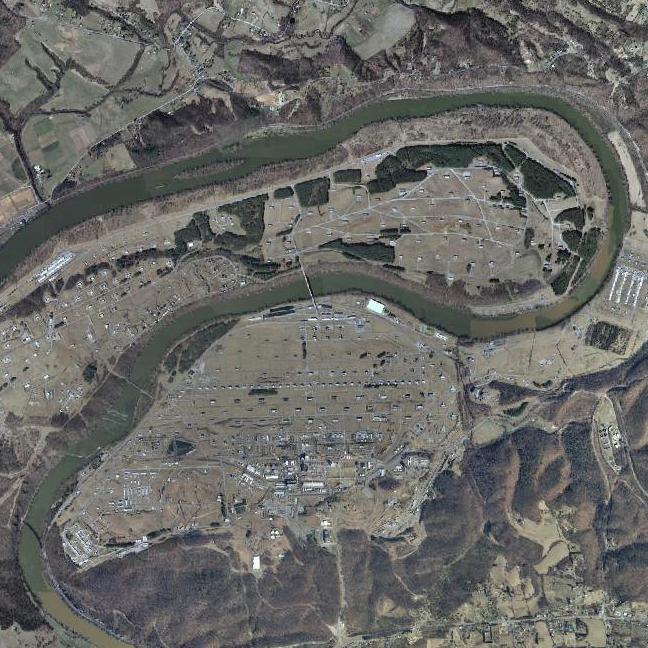IGC Fellows Complete Five Capstone Projects in 2023
May 24, 2023

Graduate students in the Interfaces of Global Change (IGC) Interdisciplinary Graduate Education Program (IGEP) at Virginia Tech take lessons from the classroom and apply them to real world, student-led Capstone Projects. The IGC Capstone Project is meant to provide students the opportunity to practice and apply skills in interdisciplinarity, collaborative teamwork, and science communication, and empower students to develop their own team project that meets their personalized professional objectives.
This spring, five capstone projects were completed, pursuing the teams’ interests in science communication, environmental justice, sustainability, invasive species management, and engaging personal values in scientific research. Each team of IGC Fellows presented their project at the 8th Annual IGC Graduate Symposium on April 21, 2023 to provide an overview of the project, relay insights and experiences gained, and to share challenges faced and how they overcame them. These initiatives were especially impressive in their efforts to connect meaningfully with local New River Valley communities, and it was exciting to see the IGC Fellows out solving real world problems!
I Can SciComm Podcast
- Melissa Burt, Biological Sciences
- Macy Kailing, Biological Sciences
- Sarah Kuchinsky, Biomedical Sciences and Pathobiology
- Sara Teemer Ricards, Biological Sciences

Science communication is a fundamental step of the scientific process, yet access to training in such skills is inequitable across universities or organizations. To further the Interfaces of Global Change program's emphasis on this important facet of research extension and impact, one group of IGC students created the I Can SciComm podcast, a freely available podcast that explores the best practices of science communication through interviews with experts from diverse disciplines. Invited guests included the Associate Director of the Center for Communicating Science at Virginia Tech, a Specialist in Natural Resources Policy at the Congressional Research Service, and a Professor in the Department of Biological Sciences at Texas Tech University. The 5-episode series is meant to provide a foundational toolkit for individuals interested in enhancing their science communication skills.
Listen to the I Can SciComm podcast on Spotify here!
Learning to Engage with Values in Science
- Camilo Alfonso, Biological Sciences
- Jennifer Brousseau, Forest Resources and Environmental Conservation
- Caleb O'Brien, Forest Resources and Environmental Conservation
- Amber Wendler, Biological Sciences
- Colleen O'Malley, Philosophy

Our values play a role in the scientific questions we seek to answer and how we conduct research. For this IGC Capstone Project, philosophers and scientists worked together to create an interactive, reflexive exploration of the role of values in science. The project was impleted over two class meetings of the first-year IGC seminar course as an intertactive workshop to help other Fellows articulate their core values and consider how these play a role in their own research. Adapted from Michigan State University’s Toolbox Dialogue Initiative, the sessions involved class discussions about values, ethical themes related to interdisciplinary research, and relevant case studies. Students also created a Values Statement that summarized their core values and the role of these values in their scientific work. As part of the project, the group collected pre- and post-session survey data from the PhD Fellows to understand their perceptions on values and ethical considerations before and after the sessions and to assess changes in their perspectives due to the experience. The learning module was designed for continued use as part of the IGC curriculum for future seminars.
A Community-Science Driven Invasive Species Inventory and Management Guide for Brush Mountain
- Jordan Coscia, School of Plant and Environmental Sciences
- Forde Upshur, Biochemistry
- Bailey Howell, Biological Sciences
- Nicholas Bone, Biological Sciences

In a collaborative effort with the Invasive Species Working Group and the Town of Blacksburg Sustainability Chair, this capstone group organized and led a “BioBlitz”-style invasive species survey of Blacksburg’s recently acquired Brush Mountain Property 3. The survey was conducted by community member volunteers using the iNaturalist app and open biodiversity database. The students used this survey data to develop an R-based interactive dashboard that plots invasive species recorded in iNaturalist and displays their invasiveness scores and potential management options. This dashboard is designed to provide an up-to-date visualization of invasive species recorded in public parks throughout the Town of Blacksburg to inform future invasive species management decisions.
An Interactive Website on Environmental Justice within the New River Valley
- Luke Goodman, School of Public and International Affairs
- Namrata Panji, Civil and Environmental Engineering
- Junyao Kang, Geosciences
- Paul Risteca, Biological Sciences
- Charles Sterling, Biological Systems Engineering

In the roughly 350 years since European settlement, the New River Valley (NRV) has undergone substantial land use changes due to human activities. Such shifts in geography have inevitably altered the interactions between the NRV people and their surrounding environment, giving rise to several environmental justice (EJ) issues disproportionately affecting people of color and low-income communities. To address these, this capstone group created an interactive website focused on EJ within the NRV to equip community members with the information they need to voice their rights. The website has five key sections centered around the NRV: an introduction, air quality, water quality, land use, and EJ advocacy. In each section, a high-level explanation of the science behind deteriorating environmental quality, and how to evaluate it, is provided. A compilation of EJ groups in the NRV that actively advocate for action against local sources of pollution is also listed. The website provides a historical accounts of EJ issues in the NRV, and acts as a hub for publicly available environmental data where users are led to various online resources with up-to-date environmental quality metrics and given a guide to navigating these resources.
Visit the EJ in the NRV Website here
Weather or Not? Barriers to Implementing Energy-saving Strategies for Off Campus Housing
- Becca O'Brien, Fish and Wildlife Conservation
- Stephanie Duston, Forest Resources and Environmental Conservation
- Brendan Shea, Forest Resources and Environmental Conservation

Weatherizing one’s home helps to reduce the cost of utilities and improve personal health by protecting the interior of the home from environmental elements such as moisture, wind, cold temperatures in the winter, and heat in the summer. Vulnerable groups such as low-income families and students are often faced with financial hardship and may be disproportionately affected by high energy costs to which weatherization could be a great benefit. At Virginia Tech it has been well documented through University-wide surveys that students (especially graduate students) living off campus are experiencing financial hardship. This capstone project aimed to quantify the weatherization needs of off-campus student housing and identify some of the barriers to weatherization as well as factors which could help improve access, ability, and motivation to weatherize. Working in collaboration with Virginia Tech’s Office of Sustainability, they collected data on living arrangements, energy cost expenditures, motivations to weatherize residences, and weatherization knowledge within the Virginia Tech community. Their findings will be available to inform materials that can be used for future outreach efforts in the New River Valley.




